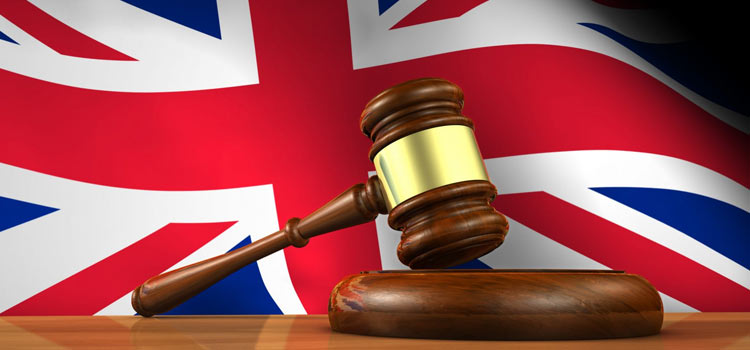There are two types of life insurance.
Risk insurance
It provides protection against risks: payment can be obtained in case of risk of death.
And also (if you have chosen these options):
- In case of loss of capacity (a disability of a certain group);
- Diagnosing a critical illness;
- Hospitalization, surgery, and injuries.
If none of this happens, contributions to the insurance are not returned, money is lost. As a rule, the amount of contributions is 2-5% of the insurance coverage, but it can vary depending on the risks, gender, health state, age of the insured and so on.
Universal life insurance
It includes payments in case of death and other above-mentioned risks, if you have chosen them, as well as a payment for the risk of survival, which is not in the risk insurance. If you survived until the end of the program, you get some guaranteed amount (usually it is approximately equal to the amount of contributions) and the investment income earned by the insurance company.
The cost of such insurance is easy to assess: divide the amount you want to receive by time left to live, by the number of years on the insurance program. The landmark may vary depending on the additional risks included in the program: sex, age, and so on.
Thus, risk insurance is exclusively a protection, and endowment insurance is a protection and guaranteed accumulation of some amount by a certain period. Risk insurance is a priori cheaper than endowment insurance, as the money does not return for survival.
However, risky insurance is more flexible: if you want to take off protection, you stop paying. And if you break the endowment insurance contract, you will not receive a guaranteed amount of surviving, and return only some of your contributions instead (and if you break in the first couple of years, you do not get to return anything at all).
Do you need a life insurance, if yes, which of the two? The following recommendations can be made.
You need a life insurance policy, if
1. The amount of savings is not enough: in case of serious health problems you will not have enough money for treatment, life, and achieving all financial goals that will still be relevant (for example, retirement, children’s education). But you obviously do not have enough money to achieve these important goals with the help of universal life insurance.
2. You generally have a sufficient capital; you will have enough for life and reinstatement. But most of it is in:
- Rather aggressive instruments (stocks, business), where there is a risk of meeting losses with unplanned withdrawal;
- Illiquid assets (like real estate), which can be quickly sold only at a significant discount.
Then risk insurance will protect these assets from unforeseen major withdrawals.
3. Your life is not stable yet: there are no important goals, you have not yet decided on the country of residence, work. You are changing the field of activity or going away from hiring to private business.
Your incomes are volatile, and it is also not clear when your expenses for the most important goals in life (especially retirement) will be, in which country, with what tax legislation, currency, and so on. In such a situation, life insurance can be ineffective: perhaps you can find a more suitable program in a new location.
But it is dangerous to be with no protection,, since there are risks of unforeseen large expenditures, and in the conditions of an unstable financial situation, they are very dangerous. So, there should a protection in the form of risk insurance.
4. You are considerably young (less than 40 years old) investor, though you still have ten years to important financial goals. You have not accumulated the necessary capital for these purposes yet, and the accumulation is completely or in many respects dependent on your ability to work.
Then it will be advantageous for you to combine risk insurance and investment portfolio, in which you will save for the purposes (focus on IIA), it will be cheaper than endowment, especially at a young age.
You will save for your goal in investment tools with a high expected return. Insurance will support you, if something happens, the payment will be enough for treatment (you will not have to take money out of the portfolio), and to compensate for contributions to the investment strategy that you missed due to disability.
But in this case, the amount of insurance coverage should be equal to the income for several years.
Endowment will do if
1. You have goals that you want to accumulate a certain amount for, they cannot be exposed to market risks, though you have decided on the country, the value of the goal is clear, the currency is preferably local.
Then at least a part of these goals can be saved in endowment to guarantee a part of the amount by the required date, even if you lose your ability to work or an aggressive strategy for the same purposes will show a loss.
2. You may have a risk of divorce or recovery of property, so that money that you would like to protect can be invested in endowment (but if it needs to be done for a short period of time, from five to seven years, then investment life insurance is a better option).
3. In case of lack of discipline, or it is hard for you to save for the goal, or you are not the most experienced investor and do not want to choose the strategy yourself, and also you are not ready for risky investments, prefer deposits and similar options. But at the same time you have a stable income. Then, for the most important purposes, you can save in endowment.
1. Choose from those who survived the 1998 crisis and are still alive. If there is no trust in Russian companies, choose ones with 100 percent foreign capital.
The main thing is that they are Russian legal entities with the Central Bank license, as when you insure abroad in a foreign legal entity you work under foreign law, all proceedings will require knowledge of local laws, spending on lawyers. It is not the best decision if something happens to the insured. Tax concessions also do not work for foreign programs: Article 213 of the Tax Code of Russian Federation.
2. Choose from those who have the maximum rating in the lists of rating agencies.
3. Note the company where they reinsure the risks: it should be a large company with a history of at least 30 years, with the highest rating of reliability of international agencies.
4. Pick a company where it is possible to choose the options for inclusion in the insurance itself, so that it is a construction, not a fixed program where nothing can be changed (concerning risks for inclusion and exclusion).
One may think that life insurance is not necessary only for those who have a solid multi-million dollar capital, and a significant part of it is in conservative liquid instruments like a deposit, which is enough for treatment, life, and all financial purposes, while protection from divorce and recovery they do in other ways (trusts, family funds and so on).
But even in this case, professionals recommend risky programs with a significant coverage for the treatment of dangerous diseases (€ 1-2 million), since it is not always comfortable to immediately withdraw such a large amount even from existing investments or business.
It is more effective to finance sudden health expenses from insurance payments and keep the capital in the bank not with the rate of 1-2%, but in more interesting instruments.
Source: https://vc.ru/43015-riskovoe-ili-nakopitelnoe-strahovanie-zhizni-chto-vybrat
Photos per websites: utmagazine.ru, http://101biznesplan.ru





